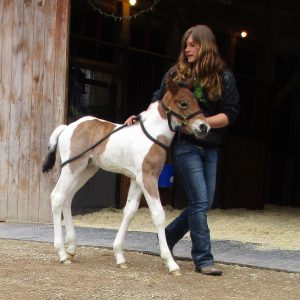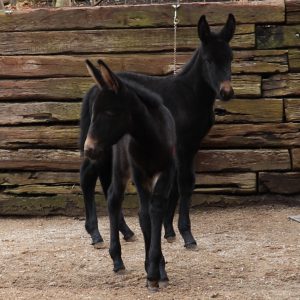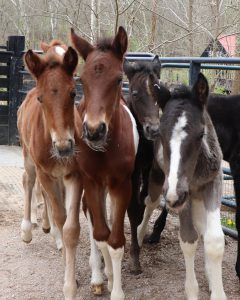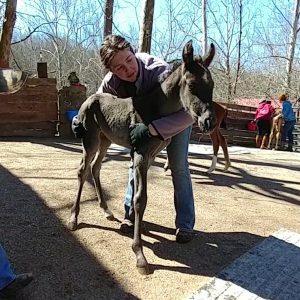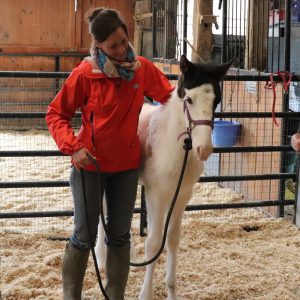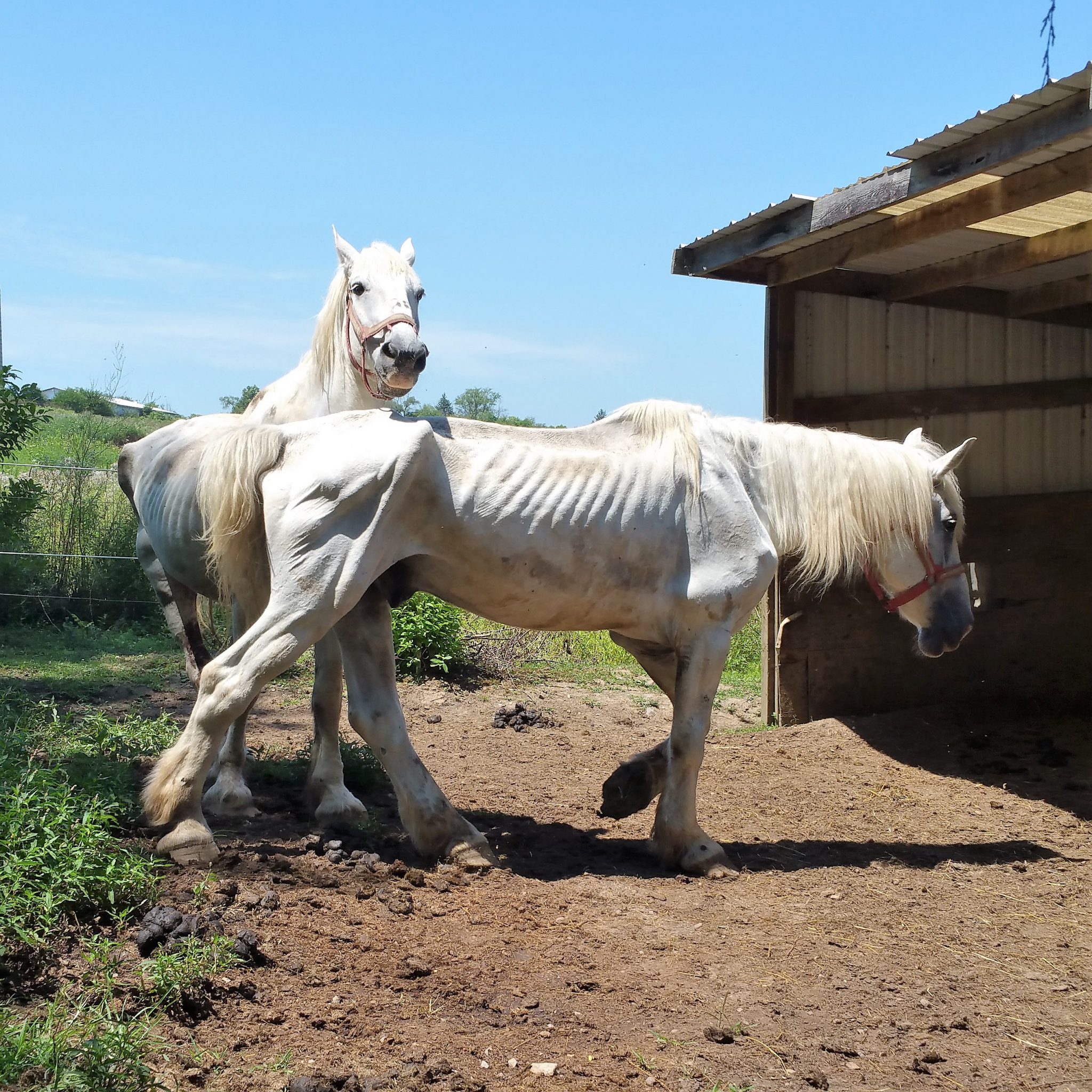NURSE MARE FOAL RESCUE
Specializing in the Rescue, Rehabilitation and Adoption of Abused, Neglected, Unwanted and Misunderstood Equine.
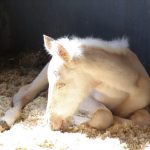
Ready to be a hero?
Start Here read all of our policies, requirements and FAQs.
I want to adopt! What do I do??
BEFORE YOU CALL…
FIRST, check all of our adoption policies, adoption qualifications, and FAQs on the website. Scroll down, read through it, and study for it like it is a final exam. If you feel that you meet the requirements, please be sure that you have sent the required emails before you call. We get so many calls we simply do not have the time and resources to recite to you the information that is available here and you should have already read. We cannot make any exceptions, our rules and requirements were put in place after years of lessons learned.
After you complete the email steps you will call and have a brief interview. We will discuss your farm, what you are looking for in an equine partner, and assess whether or not you are able to care for a foal. Don’t worry, as long as you read the website first, we won’t bite!
During the phone interview, if you qualify, we will most likely set up a time for you to pick out and pick up your foal(s).
When you come to get your foals, you need to get the directions off of our website. Some GPS systems will send you to the wrong place so the best thing is to type in LAST CHANCE CORRAL, Athens OH if it comes up, it should be good. It is also shown on Google map displayed on the contact page.
We have a first come/first serve policy (to qualified homes only) when it comes to adopting foals. We can hold for 24 hours(exceptions are made for long travel) ONLY with a non-refundable deposit. We do not hold/board foals under any circumstances, unless you are the President of the United States or the Supreme Ruler of the Universe (proof required).
ADOPTION POLICIES AND FAQs
No.. there isn’t an application, it is a process and this is where you start.
READ THE ENTIRE PAGE! IT’S IMPORTANT!
Ready… begin.
We strongly recommend that you print this out and study it. We will ask you many of these questions and you will want to refer back to this document many times.
Here at the Last Chance Corral our number one priority is to make sure the homes we find for our loved ones are suitable to their needs and abilities. Throughout the years we have discovered that there are certain requirements that we find make both the adopter and the horse or foal’s life much much better.
The first and probably most important factor in selecting an adopter is that they must have horse experience and must have a horse on your property currently. Foals need and adult horse to teach them how to be a horse as mom would. We do not adopt our loved ones out to people who have not had the wonderful experience of owning or caring for a horse previously. Our horses have already been through enough and need not to go through the often overlooked challenges that first time horse owner experiences.
The second requirement is that you have the appropriate facilities. You need to have a barn with stalls and quality fencing in the paddock or pastures. For nurse mare foals it is required that you have a barn on your property. There should be a run-out attached to the foal stall/barn area as you will not be able to lead them for some time. They are strong and can quickly get loose, this could be disastrous for the foal. The foals need to be constantly monitored not just checked on once or twice a day. They need companionship and motherly love, as any baby would.
We do not allow foals to be adopted to homes with barbed wire or high tensile fence. These types of fencing are not safe for even an adult horse, and are out of the question for foals. Foals require safer fencing, such as 3-4 board fencing or gate panels.
We get a lot of comments and complaints about our adoption requirements and policies being too strict. Adopting foals is a long term commitment and not to be embarked upon frivolously. Don’t let the novelty of getting a baby cloud the reality of what is to come. They need to be loved, worked with and trained in order to live happy productive lives. Too many people take a cavalier approach to adopting, they get caught up in the idea of adopting cute little foals and have all good intentions but without the discipline to follow through and the ability to follow through the horse may suffer, maybe not today but in the long run. We want horses go to homes where they are going to be loved, trained, enjoyed and stimulated, living their lives to their potential rather than becoming pasture ornaments or worse(meat). The reality is that the most we can hope for is a safe environment. Our background checks, address verification, vet and farrier references are the best we can do to ensure their safety. There is just no way to know if people will be good owners. There is nothing more disheartening than seeing posts like this one. The killers would scoop her up in a heartbeat at this price!
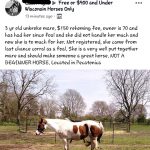
If the financial obligation of two foals would be a strain on your budget, remember that when caring for a baby, unexpected vet bills might come up, and the foals shouldn’t suffer due to lack of reasonable funding. Make sure that you are financially ready to adopt a foal before you adopt. We do not want foals being used for fundraising, you are responsible for the long term care of the foals.
We do not adopt to rescues unless for the sole purpose of being a personal horse. They cannot be used as fundraising tools for another rescue. Once a foal is adopted it is adopted. It cannot be claimed as a rescue by another organization. We are adamant about this. Horses NEVER need to be rescued from us. Remember, when you sign your adoption contract you are agreeing to these adoption policies.
You can print and fill out an adoption agreement and bring it with you or you can fill one out here when you pick up your foal. DO NOT email us an adoption agreement until you have called, been approved, put a deposit, and set an appointment to pick up your foal.
Recap of Requirements
1. You must have owned a horse previously. No exceptions.
2. You must have quality fencing- for foals, no high tensile or barbed wire. No exceptions.
3. Our foals are adopted out in pairs. A foal that is older (6 weeks old +, decisions will be made on a case by case basis) might be able to go alone, but we REALLY prefer, for the foal’s sake that they go with a buddy. Two “fancy” colors i.e. palomino, paint, buckskin, appaloosas cannot be adopted together. No exceptions.
4. You must have an active relationship with your vet and farrier, and they need to be “on board” with the regular health care of your foal. They also need to vouch for the care that you give your present horse(s). No exceptions.
5. Your barn with stalls must be on your property if you are adopting foals. No exceptions.
6. Foals cannot be used to raise funds for other organizations. No Exceptions.
7. You must presently own horses, to teach the foal to be a horse when it gets older. No exceptions
When you sign the adoption agreement contract you are agreeing to all of these policies.
Falsifying information or not adhering to policies will be considered breech of contract.
FAQs
STEP TWO! READ CAREFULLY.
Frequently Asked Questions Regarding Nurse Mare Foal Adoption
Policy for Holding Foals: We will only hold foals for 24 hours with a 50% (non-refundable) deposit. The 24 hour “hold period” starts when the deposit is made, and cannot be transferred to a different foal (unless a medical condition arises in which case LCC has the right to hold back any foal from adoption). If the foals are not picked up within 24 hours of the deposit time, they will be placed back up for adoption and we will retain the deposit. We understand how inconvenient this may be for potential adopters, but through many years of experience we have decided that this is the best for the foals. It is very inconvenient to the dying foals that we can’t pick up because we have cancelled appointments and changed minds. Thank you for understanding.
Why aren’t these foals with their mothers?
These are nurse mare foals. For more information on what nurse mare foals are and where they come from, visit our section on “Foal Rescue”, or go to lastchancecorral.org/foal-rescue.
Can I volunteer? What would I be doing?
Yes, we take volunteers (18 or older unless accompanied by their legal guardian or chaperoned by 4H leaders). People can come and help us clean stalls, wash baby butts, and help around the farm. You will not be riding horses… most of the work is in the “poop” department. We start work at 9am and are generally done with volunteers by 2pm. We do not have lodging, so if you are coming from out of town, you will have to get a hotel room. If you would like to volunteer, give the farm a call at (740)594-4336 to set up a time! Every useful set of hands counts!
So… it’s basically the same as the PMU foals… right?
No. By law, PMU foals have to remain with their biological mothers until they are 100 days old, effectively making them wean-lings when they are separated. Nurse mare foals can be anywhere from a few weeks to a few hours old when they are separated, and some are even induced.
How do they eat? Do they nurse from a baby bottle?
We NEVER use baby bottles!! When we bring the orphans to the farm, the first thing we do is teach them to drink milk out of a bucket. This is easier for a few reasons. First, a foal eats in small amounts very frequently. It would be almost impossible to find homes that were able to bottle feed foals every few hours. Second, if they drink milk out of buckets, they are able to drink as much as they want, whenever they want. Also, as they grow older, they seem to be a little less mouthy, since they don’t equate human hands with mealtimes.
I have high tensile/barbed wire/electric tape/coated wire/electric rope etc. Is that ok?
Definitely not. While they are young, the foals need a solid fence to keep them contained. A foal with its mother is able to read her body language to see when they are getting too close to a scary fence, but an orphan wouldn’t understand to back away until they are caught in it. With an electric fence, they could potentially blow through it, getting cut up, seriously or permanently injured or even killed instead of recoiling as an older horse would. Wire mesh is fine, Hog-wire is fine, stock fence is fine, board fence is fine.
I haven’t used a veterinarian for my horses in years because I give my own shots. Is that OK?
Even though you might have endless experience with adult horses, foals are an entirely different ballgame. We ask that you develop a working relationship with a veterinarian that has experience with foals before coming to adopt. Make sure that your vet is willing to work with you and answer any questions that you may have. You never know when you might need to call for advice at 3am because your foal is doing something you have never seen before.
I have owned horses my whole life but currently do not have one on my farm. Is that OK?
No, your horse needs to learn horse behavior from another horse. It is very important that your foal has the opportunity to see and (later on) come in contact with an adult horse as he/she ages. Because these foals are so dependent on humans, they tend to grow up like big dogs or bratty children if not raised with structure and other horses to “look up to”.
My mare is wonderful and would make a great mom (or) My mare’s foal just died and she is so sad… will she raise a nurse mare foal?
We cannot tell you how many people come to us with this one… “Sparkles is just THE BEST. She would love to take care of a foal. She is so quiet and will let me do anything to her, including touching her teats!” We are sure that Sparkles is wonderful and you can touch her anywhere. Unless you have bitten her in the teat while she was sleeping and got a motherly reaction instead of a kick in the face, it is hard to tell whether or not she will really be a great mother. Also, just because she loves one baby doesn’t mean she will love another. We can give you tips on how to introduce your mare and a new foal safely, but you will have to be prepared ahead of time to raise the foal as an orphan, just in case. This means that if your foal is under a month old, you are looking into adopting TWO foals and raising them orphans. 99.99999% of mares will not take on another foal. Even if they have milk (and they can dry up in a matter of a few hours), their baby just died, and are screaming their head off for their lost baby… it doesn’t mean that they will take ANY baby. Think of it this way: You have a newborn, it dies. Are you going to immediately want to adopt another baby? Any baby? It is the same situation with a mare. The safety of our foals is our number one priority. We have made it our policy to not adopt out foals to people with the intention of putting them on a mare, for the foals’ safety.
I have a goat- will it raise the baby?
A goat could provide companionship to an orphan, but these babies like to snuggle up to something when they sleep. They pile up like puppies here in the barn, and it is highly doubtful that a goat would do the same. Would you want your toddler learning behavior from a gorilla? It’s a similar situation. The foal needs “motherly advice” from an animal that has common behavior patterns, another horse.
Why do I have to take TWO foals?
These foals are young. They are meant to be nuzzled, licked, and snuggled by their mothers. Since these babies don’t have mothers, the best that we can do for them is to give them a friend that is craving the same affection. In the past we have tried adopting out babies singly, but have found that depression sets in quickly. If the babies are depressed, they won’t eat. If they don’t eat, they will die. If you are only able to keep one foal, you are welcome to foster the second one until they are old enough to separate (generally at 4-6 months old). Keep them turned out and stalled together until then. ONCE THEY ARE OLD ENOUGH TO BE WEANED FROM THEIR BUDDY, a quiet adult horse (an ancient laid-back horse/pony) will substitute for a friend. PLEASE do not call us asking if you mare/mini/goat/boyfriend/dog/old horse/pony will be an appropriate companion for your young foal.
Why do the babies lick/suck everything- including me?
Even without their mothers, these babies have a strong desire to nurse. Armpits are often mistaken for Mama as they root around looking for milk. Mouthing is nothing to worry about unless it turns into nipping and biting, which should be corrected immediately. When they are small and on milk, they have such an urge to lip/nuzzle you that it is almost cruel to smack them away. Lips are OK, teeth are not, at any age. Once they are off of their milk, you can start making more rules about lipping your clothing, but in the beginning, as long as there are no teeth involved, cut them some slack. Understand that it can become an undesirable quality when the horse is older. Germs on hands can make baby sick.
When do they start eating hay and grain?
The day they arrive, they nibble on hay and grain. The older they get, the more they eat. By the time they are 8 weeks old the majority of their diet will be hay and grain. They can have unlimited grain until they start making a career out of chomping it down the second you put it in the bucket. Usually this is around 8-10 weeks. After that, grain 2-3 times a day is best instead of free-choice.
What kind and how much hay and grain do I give them?
We feed a high quality soft grass hay. A little alfalfa isn’t a bad thing; they just often don’t like the rough texture as much until they get a bit older. We feed Omolene 300 which is made by Purina. When they are young we feed hay and grain free choice. As they grow they will start to chow down on the grain and you will want to cut back to several servings a few times a day instead of “all you can eat”. High quality hay still remains free choice for the rest of their lives.
What is their milk made from?
Their milk formula comes in a 50lb bag and is called “Buckeye Mare’s Milk Plus”. It is expensive ($120-150 a bag) and if your local feed store does not carry it, they can order it for you. Your local Tractor Supply will be able to get it in for you, even if it isn’t something that they usually carry. Be persistent with them, the squeaky wheel gets the grease! Just be sure to have bags of milk in your barn BEFORE you come to adopt!
Why does the milk have a green tint?
We add several probiotic supplements to the milk, including G.U.T. by Ukele (that’s the green stuff). We also add 1lb low-fat vanilla yogurt to every 5 gallon bucket and some generic Quaker oats for fiber. Mix ‘er all up and you have a bucket of milk! By the time you adopt your babies, you don’t absolutely HAVE to have the other additives, but it would sure give your foal that jump-start that just may make it a champion! It is definitely recommended. We will give you a recipe sheet that explains exactly how we mix our milk when you leave.
Can I buy my milk formula from you?
We try to save our milk for our own babies, as we can feed up to a bag a day during the busy season. If you are unable to get your own milk in for another week or so, but are ready to adopt otherwise, we can sell you ONE and only ONE bag from our stash. BEFORE you come to adopt foals, you need to have your milk already special ordered or bought from your tack store. We will only sell you one bag (which will last two foals less than a week), so if you are unable to get milk in your possession before then, then we will not send foals home with you.
How long do they need to be on the milk replacer?
It depends on the baby. Some babies are blowing up like a blimp at 7 weeks; others are a little weaker and need to be on it for 10. 8 weeks is the general rule. Pay attention to your baby and cater to its individual needs. If you have two foals and one can come off milk but the other needs to stay on, just continue with the milk for both until the weaker one is ready. It will not hurt your chubby foal and is so much easier than dividing them up for feeding times.
How do I wean them off the milk replacer?
Do not take them off it suddenly. Gradually water it down over a couple weeks while always providing another full bucket of clean, fresh water. By the end, you should be giving a bucket of ½-strength milk at night only. Only take them off the milk when you are confident that they are drinking enough water and eating enough hay and grain to sustain them, and not before they are 8 weeks old.
How long does a 50 lb bag last?
Usually, a 50lb bag of milk will last two foals a little less than a week. Remember, the bigger they get, the more they drink.
Can they be turned out?
Definitely. They absolutely MUST be turned out. Exercise is necessary for proper limb and muscle health. It is not recommended to turn them out in a large back pasture where you cannot catch them, but they need enough space to be able to get into a full run. The turnout needs to be bigger than a round pen. The bigger they get the more space they will need.
Can I keep them at a boarding/training facility if the owner lives on-site?
Not unless the training/boarding facility owner wants to adopt foals! We do not allow foals to be kept anywhere but YOUR barn for a few reasons. First, these babies often require round the clock care- and asking the barn owner to go out at 4am for a baby with colic isn’t realistic. If your baby stops drinking, you will have to make sure it eats every 2 hours, often medicating it multiple times a day… something else your barn owner should not be responsible for. You need to be aware of what your baby is doing all of the time. Foals can “crash” in minutes, before lunch she was fine, now she’s a hot mess. Secondly, at a boarding facility, there are often many different people cleaning, leading, feeding, washing, and overseeing the horses. Foal care equates to diligent observation, especially if they are young and sick. Leading/handling your foal is TRAINING your foal, so imagine the dumbest, craziest person at your barn training your baby. Oh boy! If your baby gets sick, the stall-cleaner can be cleaning out signs that are important to you, spilled milk, uneaten hay, diarrhea, etc. Even if he tells you about it, there is nothing better than seeing it for yourself. Thirdly, turnout is tricky. What happens if your foal gets turned out with at 10 year old that was just gelded last week? Communication is not as reliable as you might think at a barn. If turnout is inconvenient (the foal may be turned out alone in an arena in some situations) it can be almost impossible for the baby to get out at all (People need to ride my horse, there are lessons going on in the arena, etc). If it rains, gets cold, gets hot, etc, the baby needs to be brought in immediately. Lastly, it is easy to say “The baby is fed and cleaned, I’ll just go out tomorrow and work with him”. An unhandled baby is a scared, unmanageable baby. Basic food and shelter are not enough for the babies at this stage of the game.
Do you adopt out of state?
YES!! You must haul your foals yourself, but many of our foals each year go all over the country!
I am in Canada… can I adopt?
The problem with Canadian adoptions is that to cross the border, our foals require a health certificate and a current Coggins test. It can take up to a week to get the correct paperwork, and during that time, the foals cannot be held at the farm. You would have to check with your province and the border’s requirements, and be sure to let them know that the foals that you will be bringing are very young and do not have their mother. Adoptions to Canada may not be available at this time. Please call for more information.
When can they be with other horses?
They cannot be turned out with other horses until they are 4 months old. They should only be turned out with a mellow, quiet horse (think OLD horse) that won’t mind their silly antics.
What about shots, wormer, hoof care, etc?
Your veterinarian will be able to guide you through a vaccination schedule for your foal. They can be wormed using Panacur. Ask your farrier to check your foal’s feet when he comes to your barn, and if you could convince him to pick up your baby’s feet, file a little off and slap the bottoms… that’s training!
How do I bring them home?
Most solid, safe horse trailers will do. Stock trailers are fine assuming the weather is OK. The back doors need to go all the way up and the dividers need to be pulled out. When preparing your trailer, you are basically trying to make a little stall in your trailer. The babies are safest being hauled loose in the same area… just like a stall. Victoria always says, “If you don’t feel comfortable with me hitting your trailer floor with a sledge hammer, then I don’t feel comfortable putting foals on it”. We don’t beat every trailer that comes in the driveway, but if we can see the white lines zooming by- you aren’t putting a foal in that thing. Save yourself some time and baby-proof your trailer before coming. You are more than welcome to email us a picture of your trailer so we can pre-approve it if you have any questions. PROFESSIONAL SHIPPERS ARE NOT ALLOWED.
I have a 3+ hour drive to get home- will the babies be OK?
You will need to stop every 3 hours to offer your baby some milk and to check to see that everything is OK. We have hauled babies all across the country and aside from being tired, they all manage quite well if the time is taken to make sure they stay hydrated and comfortable. We will provide you with milk already mixed up to offer to them on your trip, if you are hauling a long distance you will need to bring a 5 gallon bucket to feed the milk from and another bucket with a lid (or cooler) for storing milk in your trailer while you are driving.
How should we haul the foals? Can we tie them in a slot in our trailer?
Not unless you want a baby with a broken neck, legs, back, pelvis, jaw, etc. These foals should NEVER be tied until they are older, more mature, and are professionals at leading and giving to pressure. When hauling these foals, you need to take ALL dividers out of your trailer. The idea you should have when prepping your trailer for a baby is that you want it to resemble an open box stall. Nothing to get legs, heads, and feet caught in, and one big open space. Think if YOU were a foal, if you fell down, what would you hit when you scrambled back up? Take a board or pole that is about the width of a foal’s leg and if you can stick it anywhere in the trailer… board that area up. Tying temporary ply board can modify almost any trailer to work. It MUST be bedded with clean hay/straw/shavings, and for long trips (3+ hours) you will need to have a bucket we can pour milk into AND a container with a lid to store milk in while you drive (so it doesn’t spill). Your floor needs to be SOLID, your walls need to be SOLID. Stock-trailer type walls with slats up high are fine but you will need to bring a foal blanket if it is cold. The doors must be full doors, not just a ramp folded up. Feel free to email us a picture of your trailer and ask if it is appropriate. If you show up and we have to modify/fix/adjust your trailer to make it safe, we will charge you liberally for all materials used. If you show up with a trailer floor or rusty walls we can hit with a sledge hammer and break through, we will send you packing. Please remember that when hauling long distances, an hour on the road takes as much energy as an hour as non-stop walking. If your foal stays standing throughout the trip (some stay down during the haul), this must be taken into consideration, and a short break every couple hours is nice. These are babies, after all!
What should we bring when we pick up our foals?
You need to bring a clean five gallon bucket, a flake or two of hay (in a slow feed hay bag or fluffed up on the floor), and any emergency supplies that you might need in case you break down. You will not need a halter or a lead rope, and if you are wanting to purchase a foal blanket to haul your baby home in (and to have at your farm), we can sell you one that we have here. Your trailer should be ready for foals when you arrive (we don’t want to be pulling out dividers and throwing down shavings when you get here). If you are traveling more than 4 hours, you will want to bring a large container WITH A LID that we can put milk in so you can feed them on the way home. If you don’t have a lid, it will slosh all around your truck or trailer.
Are they broke to lead/tie/etc?
Nope. You will need to “bear hug” them out of the trailer when you get home (an arm around the leg and an arm around the butt) because the majority of the babies that we adopt out have never had a halter on. When you do halter-break them, put a butt-rope around them to encourage them from backing up and flipping over. We don’t care what Uncle Jimmy says either; a butt-rope is the safest, fastest, and kindest way to go. Use it!
What does normal foal poop look like?
The color will vary depending on what your baby eats, but in the young foals, you are looking for a frosting consistency. The older they get, the more it will change… eventually becoming “horse poop”!
My baby has diarrhea! What do I do?
Keep that baby drinking! If the baby stops drinking while it has diarrhea it will dehydrate and die. You can thin down the milk a little bit to help. You can give your baby anything you can give a toddler for diarrhea- Pepto-Bismol, Imodium, etc. Pedialyte is also great. If it does not resolve within a couple days, call your veterinarian. Read the “foal care”
My baby likes to run up to me and “shake hands” with his hoof! Isn’t that cute?
Not unless it’s going to be real cute when you are admitted to the hospital with a concussion because your 1200lb four year old pawed you in the head “playing shake”. Remember, anything you let them do now they are going to try when they are older.
How should I teach my foal to lead?
Use a butt rope! Put a halter on, run your lead rope in a figure ‘8’… from the halter, over their withers, around their butt (above their hocks) and up the other side to their withers again. When they resist a gentle pull of their halter (and I promise they will…) just pull with the butt rope at the same time to encourage them to step forward. When they take the lightest step, release the pressure. They will pick it up very quickly, but be sure to continue to use the butt rope until you are absolutely sure they won’t try to fly backwards.
When do I start training (leading, bathing, picking up feet, etc)?
Yesterday! The sooner you do it, the easier it will be! Their young minds are like sponges, and you are teaching them whether you mean to be or not. They need to have their minds fed as well!
OUR POLICY REGARDING HOLDING FOALS
We have a policy that we don’t hold foals for people, but with some of you often traveling from out of state, exceptions are *sometimes* made. Recently, however, we have had an amazing amount of people that “change their mind” or “can’t make it until next week/month/decade/etc”. While we are holding these foals, we are often passing up other homes for these particular babies. Babies in the barn means spots taken up so other foals cannot come. People often ask if they can pay extra to hold the foals, and while the financial assistance is a nice gesture, it is the lack of space that is costing the waiting foals their lives, not the funding that feeds them. Because of this, we have created a new policy. If you are adopting a foal and can’t take it home that day, we will take a NON-REFUNDABLE 50% deposit and hold the foal for you for ONLY 24 hours starting when the deposit is paid. If you do not pick up the foal within that time frame, we will retain your deposit and the foal will be placed up for adoption again. We understand that things pop up, but cannot let these little lives hang in the balance because one potential adopter has car trouble, a sick child, or their hauler flaked on them while we turn other qualified homes away. We hope that you can understand where we are coming from, as these are not easy decisions to make. The bottom line is that we try to save as many foals as possible, and to do that we need to place as many foals as possible into appropriate homes. PLEASE don’t call and say “I read your policy online, but I was wondering if you could just hold them for me for 2 days?” NOOOOO!!! If you want us to hold a foal, put a 50% non-refundable deposit on it and get out here within 24 hours. The only exception will be if you are over 24 hours away (we have had people drive out from California, and it physically took them more than 24 hours drive time to get here). We will make exceptions on a case by case basis. We are not meaning to be rude, but the lives/welfare of the foals are our top priority. Thank you for your understanding.
STEP THREE
THE STEPS TO ADOPTION
OK, YOUR ALMOST THERE!
FOLLOW THESE NEXT STEPS TO GET APPROVED
DON’T BE SCARED IT’S NOT THAT HARD
Now that you have completed steps One and Two and you feel that you are in a position to adopt, here is what you need to do IN THIS ORDER! Keep in mind that our first priority is the future health and happiness of the foals, we cannot go out and visit everyone so we rely on the opinions of other equine professionals. Please be honest, if we think that anything smells funny or that it is possible BS… NO FOALS for you. We have had to repo foals too many times. We have many eyes out there in the world that report back to us.
Ready, begin.
- Email to us photos of your fencing, stalls, all areas where foals will be kept, photos of current horses, your contact information including: Full name, phone number and physical address.
- Call your Vet and your farrier and ask them to email us directly from their email address a brief (or not so brief) statement. This statement MUST state the level of care that they feel your horses receive and if they feel that you and your facility are well suited to adopt orphan foals. They must understand that you are adopting orphan foals. Often we find people that do their own farrier work or have farriers that do not email. Not a problem. However, we would need your Vet to verify the care and condition of your horses feet or documentation that shows you are a trained farrier.
- OK, so now that you have completed steps one and two it is time to give us a call 740-594-4336 and arrange a time to come pick up your babies! Do NOT call unless all steps have been completed in other words you have read and fully understand everything. We simply do not have the time to recite all of this to everyone that is interested in adopting, if you call and have not completed all the steps, please do not think that we are being rude when we ask you to refer to the website. Upon calling we will do our best to make sure that you are qualified and assist you with picking out foals. Foals that are available will be listed on the Available Foals page. Congratulations you made the cut! You are a parent!
WHOA! Slow down, now you need to read about foal care and make your shopping list.
